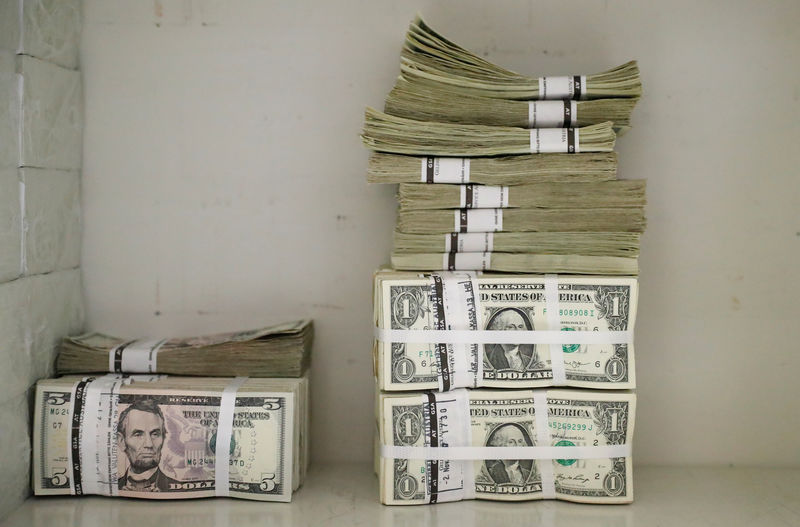By Saqib Iqbal Ahmed
NEW YORK (Reuters) - The dollar edged lower against a basket of other major currencies on Friday, as investors remained skeptical of U.S. Republicans' efforts to pass tax cuts after a barren first year for the Trump administration in Congress.
Congressional Republicans took important steps on Thursday toward the biggest U.S. tax code overhaul since the 1980s, with the House of Representatives approving a broad package of tax cuts and a Senate panel advancing its own version of the legislation sought by senior lawmakers and President Donald Trump.
The House vote shifted the tax debate to the Senate, where a tax-writing panel finished debating and approved a bill late on Thursday. That measure has already encountered resistance from some within the Republicans ranks.
Full Senate action is expected after next week's Thanksgiving holiday.
"Traders are not jumping the gun here. They're looking to see what happens as the political sausage-making process runs its course," said Karl Schamotta, director of global product and market strategy at Cambridge Global Payments in Toronto.
"The saying to think of here is politicians never miss an opportunity to miss an opportunity," he said, adding that while any potential benefits to the dollar may be priced in, any disappointment could hurt the greenback.
The dollar index (DXY), which measures the greenback against six rival currencies, was down 0.14 percent to 93.805. For the week, the index was down 0.6 percent.
The dollar was also pressured by a report on Thursday that Special Counsel Robert Mueller's investigators probing possible Russian interference in the 2016 U.S. election had subpoenaed Trump's election campaign for documents.
"This is unquestioningly going to weigh on the administration's ability to pass tax reform and enact any other fiscal reform measures that would support the economy," Schamotta said.
The dollar firmed briefly after data showed U.S. homebuilding jumped to a one-year high in October.
The euro
The Canadian dollar weakened to a 10-day low against its U.S. counterpart after data showing subdued domestic inflation reduced expectations for further interest rate hikes by the Bank of Canada through the first quarter of next year.
The Australian and New Zealand dollars both headed for sizable weekly falls as their yield buffers over the U.S. dollar shrank to the smallest in over 17 years, undermining their appeal as carry trades.

The greenback was up 0.59 against the Australian dollar, and the kiwi was down 0.8 percent.